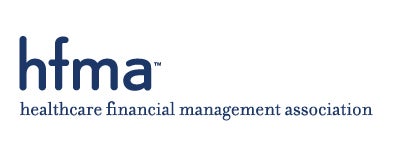About this degree
This degree will offer future healthcare leaders the opportunity to earn the Master in Population and Health Systems Management degree along with four industry-recognized healthcare finance certificates offered through HFMA.

The Healthcare Financial Management Association (HFMA) equips its more than 64,000 members nationwide to navigate a complex healthcare landscape. Finance professionals in the full range of work settings, including hospitals, health systems, physician practices and health plans, trust HFMA to provide the guidance and tools to help them lead their organizations, and the industry, forward. HFMA is a not-for-profit, nonpartisan organization that advances healthcare by collaborating with other key stakeholders to address industry challenges and providing guidance, education, practical tools and solutions, and thought leadership. We lead the financial management of healthcare.
HFMA’s Certified Healthcare Financial Professional (CHFP)
The CHFP program has been updated to provide the broad range of business and financial skills essential for succeeding in today’s high-value healthcare environment. The new CHFP is geared toward financial professionals, clinical and nonclinical leaders, and payers – all those whose jobs require a deep understanding of the new financial realities of health care.
Certified Specialist Business Intelligence (CSBI)
Useful business intelligence requires people with the capabilities to inspect, clean, transform, and model data with the goals of highlighting useful information, suggesting conclusions, and supporting decision making. This course presents methods for looking at the right data and using tools to ensure that useful information is illuminated and used to enable powerful actions and decisions in healthcare organizations.
HFMA Business of Health Care® Course Descriptions
HFMA Business of Health Care® is designed as an online learning experience. There is a Concept Guide that can be used as a study guide as you review each course, and brief knowledge demonstration exercises through each course as well as a quiz to conclude each course. Additionally, once you have completed all courses, there is a comprehensive examination to validate your knowledge.
I. Healthcare Finance – The Big Picture This course presents a big picture overview of the evolution of healthcare service delivery and payment. It highlights the healthcare transformations including the shift from volume to value, quality, patient satisfaction, competition on cost and the evolution of the payment system. Attention is given to the changing roles of managers in healthcare finance.
II. Financial Accounting Concepts The purpose of financial accounting is to summarize financial activity in a business in the financial statements. Accurate, complete, responsible financial accounting is an absolute must for maintaining stability in a business. The principles and practices supporting financial accounting are presented in this course. It provides a clear description of fundamental accounting principles and terminology that finance professionals need to know, a clear analysis of provider, payer and physician group financial statements, as well as management and financial reports used in healthcare.
III. Cost Analysis Principles Cost reduction is a central goal in healthcare reform and cost analysis a critical activity in healthcare organizations. Yet cost analysis is not simply identifying cost. Used appropriately, it assists managers in making decisions in areas like pricing, revenue planning, setting standard cost, capital investment and marketing decisions. This course addresses cost management, traditional cost-funding methods, activity based costing, price setting and profit analysis.
IV. Strategic Financial Issues In this course, we will link the use of financial statements, management of costs, and price setting to the strategic planning and objective-setting process of managing a healthcare business. These elements apply whether the type of healthcare business is a hospital, health plan, or physician clinic.
V. Managing Financial Resources Financial resource management is the efficient deployment of fiscal resources. The challenge of meeting the demands of reform and a shifting business environment requires the allocation of financial resources in an effective and thoughtful manner.
Course V provides the practical know-how for productively managing financial resources. The core concerns today – reimbursement, capital, long-term financial planning, metrics and data – are examined.
VI. Looking to the Future Healthcare finance professionals are working in a rapidly evolving business environment. This last course explores the future of the industry and empowers the learner to plan for that future. Key business drivers, shifting reimbursement; finance-physician alignment; population health management as well as the power of data and business intelligence are addressed in this course.
HFMA Certified Revenue Cycle Representative (CRCR) Program
Created to advance revenue cycle staff’s proficiency and technical expertise – the Certified Revenue Cycle Representative (CRCR) program is a national certification for revenue cycle staff. The CRCR program helps set standards of performance for revenue cycle staff and proves a high-level of revenue knowledge and expertise has been reached. Today’s revenue cycle staff must have a broader understanding of the entire revenue cycle and how it influences the financial outcomes of the healthcare organization. HFMA’s Certified Revenue Cycle Representative (CRCR) program provides healthcare organizations with a means to ensure that their revenue cycle staff has the body of knowledge necessary to meet these demands.
Certified Specialist Accounting & Finance (CSAF)
The critical role of accounting and finance requires technical competencies used in decision support for all areas of healthcare management. The course provides an overview of healthcare accounting and finance to strengthen these competencies and address financial reports and statements unique to healthcare. In addition, the program provides a practical overview of risk-sharing arrangements, managed care contracts and profitability ratios.